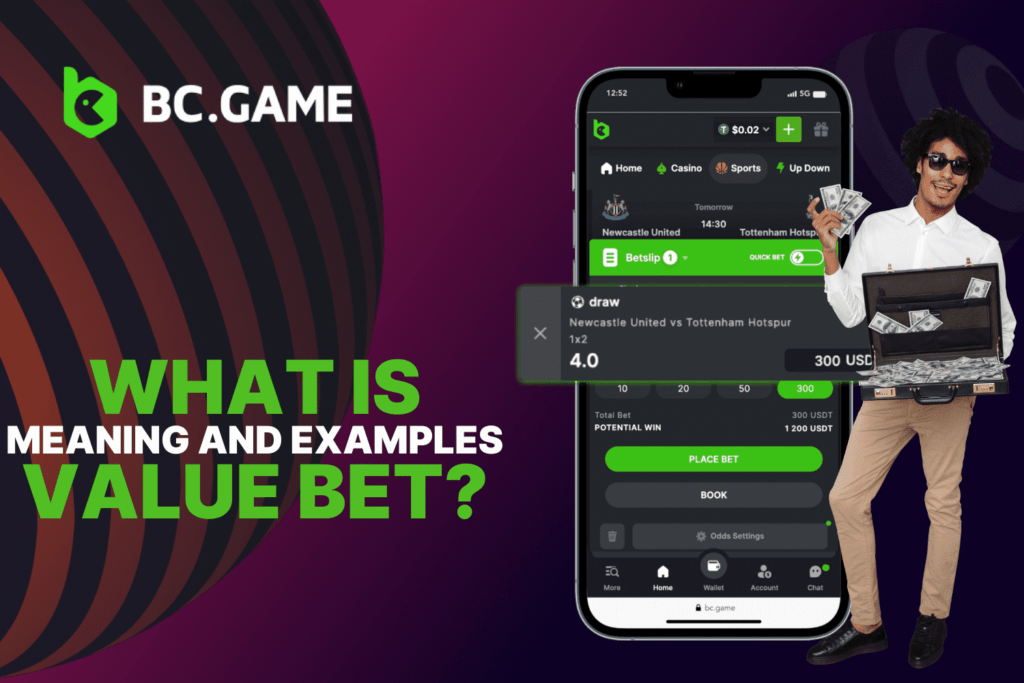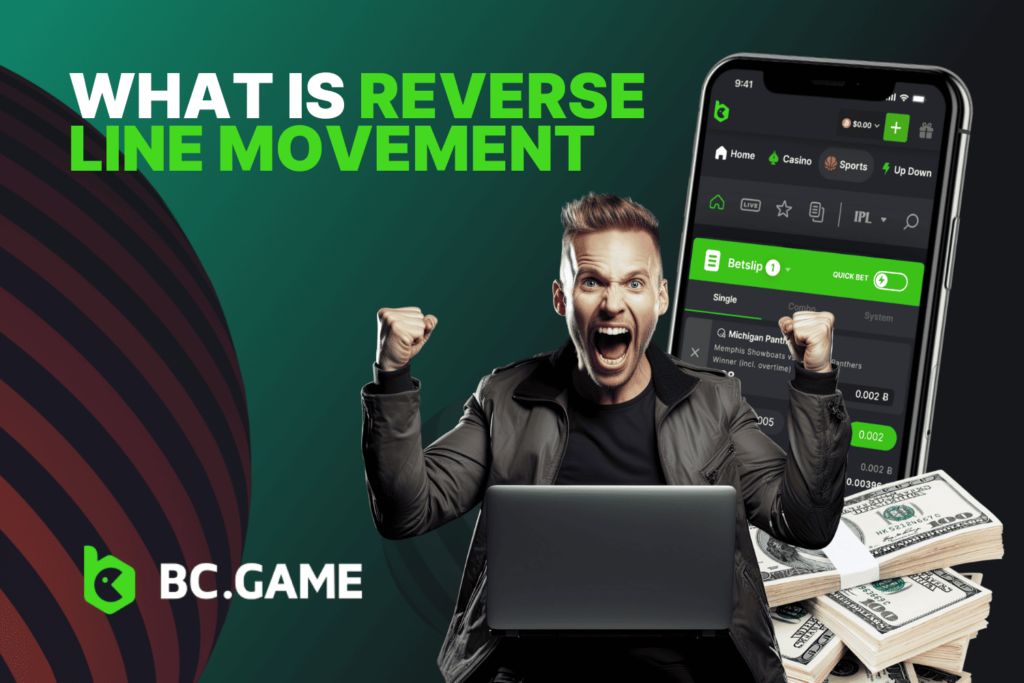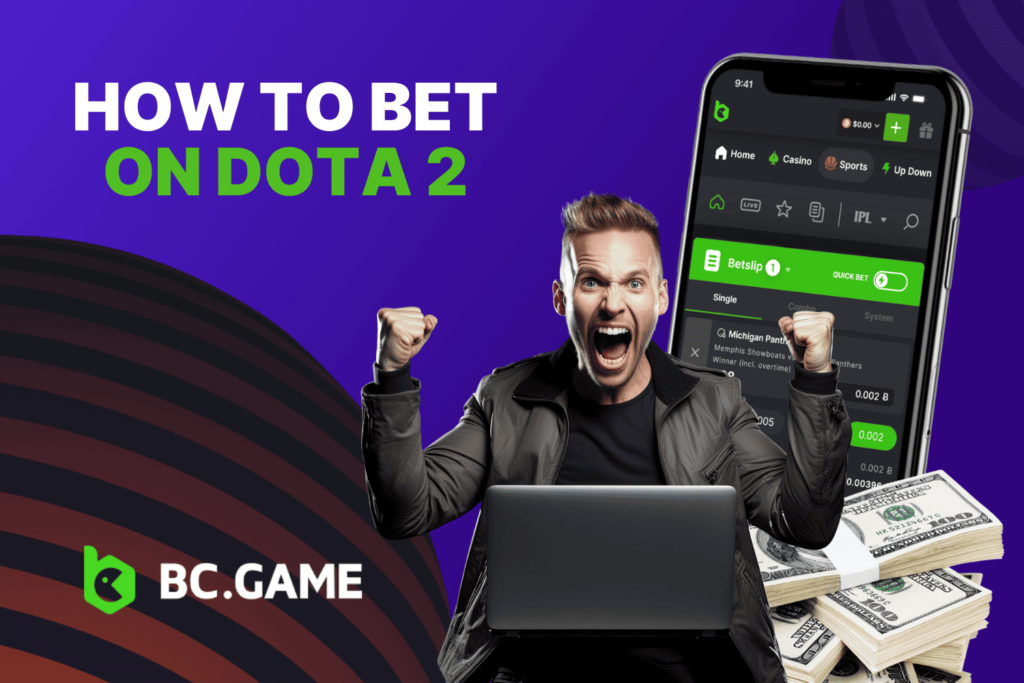
If you’re into sports betting, you’ve probably heard about “Value Bets.” It’s not just betting lingo, it’s a concept that can really make a difference in whether you win or lose. So, what is value bet? Well, it’s all about finding bets where the odds might actually be in your favor, more so than what bookmakers are saying. Sounds good, right? But hold on, it’s not a golden ticket. You’ve got to know the game well to spot these opportunities, and even then, there’s no guarantee. But if you can get it right, it could really pay off. So, if you’re serious about betting, understanding value betting is pretty much a must.
At its core, a value bet refers to a wager that is placed when the odds offered by a bookmaker appear to be higher than the actual probability of the chosen outcome occurring. In other words, value bets occur when the odds suggest a greater chance of winning than the perceived likelihood based on your analysis.
Alright, so you wanna get deeper into this whole “Value Bets” thing, huh? We’ll break down what is value betting, the good and the bad, and how to spot ’em to give your betting game a boost. Whether you’re a pro bettor looking to fine-tune your game, or just starting out and wanna get the basics, this guide’s for you. So let’s jump in and see how understanding value bets can really change the way you bet.
What is a Value Bet
In contrast to value bets, where odds are in favor of the bettor, a valueless bet, also known as a “bad bet” or “negative value bet,” occurs when the odds offered by a bookmaker suggest a lower probability of winning than what the bettor perceives based on their analysis. Essentially, a valueless bet is placed when the odds do not accurately reflect the actual likelihood of the chosen outcome.
Formula for Calculating Value Bets
The concept of value bets can be understood through a simple formula:
| 🎲 Valueless Bet = (1 / Odds) * 100 👉 Where: “Odds” – represents the odds provided by the bookmaker. Percentage of Potential Loss The percentage of potential loss in a value bet can be calculated by subtracting 100 from the valueless bet percentage: 🎲 Potential Loss Percentage = Valueless Bet Percentage – 100 |
It’s important to note that placing valueless bets can lead to losses over time, as they are based on odds that do not accurately reflect the actual probability of winning. Betting on valueless bets consistently could result in diminished returns and negatively impact a bettor’s bankroll.
Understanding the difference between value bets and valueless bets is crucial for bettors to make informed decisions and develop effective betting strategies. While value bets aim to capitalize on favorable odds, valueless bets represent opportunities where the bookmaker’s odds work against the bettor’s potential for profit.
Example of Value Bet
For our value bet example, let’s consider a recent match between Austria and Turkey, with Austria winning 6-1. Let’s assume that before the match, a bookmaker offered odds of 4.00 for Austria to win by a margin of 5 goals or more. This implies that the bookmaker estimated a 25% chance for this outcome (1 divided by the odds of 4.00).
Nevertheless, if, contingent upon your scrutiny and comprehension of the squads, you surmised the genuine likelihood of Austria triumphing by 5 goals or more was augmented, say 30%, this would manifest a propitious wagering prospect. The expected value (EV) of the wager can be deduced as follows:
| 🎲 EV=(Probability×Odds)−1 🎲 EV= (0.30 × 4.00) −1 🎲 EV=0.20 |
With an EV of 0.20, this bet offers positive value, meaning that over the long term, you could expect to make an average profit of 20% of the stake placed on each bet of this nature, assuming your assessment of the probabilities is accurate.
Reasons for the Emergence of Valueless Bets
Valueless bets can emerge due to various factors, often resulting from inconsistencies between bookmakers’ odds and the bettor’s perceived probabilities. Here are some key reasons for the occurrence of valueless bets:
- Market Imbalance: Bookmakers might set odds based on market demand rather than the actual probability of an outcome.
- Public Bias: High bets on popular teams or players can skew odds, sometimes resulting in valueless bets.
- Divergent Analysis: When a bettor’s personal analysis diverges from the bookmaker’s odds, they may mistakenly see value.
- Late Odds Shifts: Odds can alter as events near, and these late shifts might not always reflect actual probabilities.
- Arbitrage Betting: Some bettors exploit differences in odds across bookmakers, indirectly creating valueless bets for others.
- Reliance on History: Solely using past data without accounting for current factors can skew bet values.
- Unplanned Changes: Last-minute injuries or lineup shifts can result in misaligned odds.
- Bookmaker Mistakes: Errors in setting odds, though rare, can briefly introduce valueless bets.
- Market Gaps: Less popular markets may have odds that aren’t as finely tuned, leading to potential valueless bets.
- Emotional Choices: Betting based on emotion rather than rational analysis can lead to perceived value that isn’t genuine.
Just a heads-up, if you’re tossing money into bets without much value, you’re playing a risky game. The smart move? Get your strategy in line and focus on finding those real value bets. Trust me, if you wanna actually keep winning over the long haul, that’s the way to do it.
Searching for Valueless Bets
In sports betting, it’s not just about spotting value bets but also avoiding valueless ones. These wagers might seem attractive but don’t offer favorable odds in the long run. Alright, spotting these low-value bets ain’t just about gut feeling. You’ve gotta know your odds, get the hang of probabilities, and have a sense of how the betting market’s moving.
So, whether you’ve been betting for years or you’re just getting started, this guide’s got something to help you bet smarter. Dive in as we demystify the nuances of valueless bets.
Manual Search
Look, tech’s great and all, but when it comes to spotting those bad bets, nothing beats good old-fashioned legwork. Sure, automated tools can give you a quick scan of the odds, but they’ll miss the small stuff the stuff that could make or break your bet. Doing your own deep dive lets you catch all those little details that machines might overlook. So, don’t ditch the human touch; it’s still your best tool for dodging those valueless bets.
Here are some key aspects to consider when manually searching for valueless bets:
- Team Analysis: Scrutinize team statistics, recent performances, and historical head-to-head matchups. Consider factors such as team form, player injuries, suspensions, and tactical strategies.
- Player Form: Evaluate the current form of key players, including goal scorers, point guards, or top performers in various sports. A player’s individual performance can significantly influence match outcomes.
- Venue Impact: Analyze how teams perform at different venues – home and away. Some teams may have a distinct advantage or struggle in certain environments.
- Weather Conditions: Weather can play a role in outdoor sports. Rain, wind, or extreme temperatures may impact player performance and influence match dynamics.
- Motivation and Stakes: Consider the context of the match – whether it’s a critical fixture, a rivalry game, or a match with potential implications for league standings.
- Tactical Insights: Explore the strategies and tactics employed by teams and coaches. Changes in formations or playing styles can lead to unexpected outcomes.
- Recent Results: Study the outcomes of the teams’ recent matches. Momentum and confidence gained from wins or losses can influence performance.
- In-Play Dynamics: Keep an eye on the match as it progresses. In-play betting allows you to assess real-time developments and make decisions based on evolving circumstances.
- Market Movements: Monitor odds movements across different bookmakers. Drastic shifts or inconsistencies could signal potential valueless bets.
- Comparative Analysis: Compare odds from multiple sources and assess the variance. Identify opportunities where your perceived probability differs from the implied probability suggested by odds.
Taking the time to really dig into the details can pay off, even if it’s a bit of a grind. When you’re doing this kind of deep dive, you’re not just looking at numbers, you’re understanding the whole story behind a match. Yeah, it takes time, but it’s time well spent. You end up making smarter calls on what to avoid and where to place your bets, which means a better shot at long-term success.

Scanner Search
Tech’s really changing the game in sports betting. These days, you’ve got software that can scan through odds from different places in no time. It’s a quick way to spot your options and even see where you might not want to put your money. So yeah, it’s getting easier to avoid bad bets and find better opportunities.
Scanner search offers several advantages for detecting valueless bets:
- Real-Time Analysis: Scanner tools continuously monitor odds and update information in real time, allowing bettors to promptly seize fleeting opportunities or avoid valueless bets as odds fluctuate.
- Comprehensive Coverage: These programs can simultaneously scan numerous sportsbooks, covering a wide range of matches and markets. This extensive coverage increases the likelihood of uncovering valueless bets.
- Algorithmic Insights: Advanced algorithms evaluate odds, implied probabilities, and historical data, providing bettors with valuable insights into potential valueless bets and helping them make informed decisions.
- Efficiency and Speed: Scanner search eliminates the need for manual comparisons and calculations, saving time and effort. Bettors can focus on analysis and strategy rather than tedious manual searches.
- Alerts and Notifications: Many scanner tools offer customizable alerts and notifications. Bettors can receive alerts when certain conditions are met, enabling them to promptly assess and act on potential valueless bets.
- Multiple Markets: Scanner search can cover a wide spectrum of betting markets, from traditional match outcomes to specialized prop bets, giving bettors a comprehensive view of potential valueless bets.
- Statistical Analysis: Some scanner tools incorporate statistical models and data-driven analysis to identify patterns and trends, assisting bettors in pinpointing potential valueless bets.
- User-Friendly Interface: Many scanner tools are designed with user-friendly interfaces, making it accessible for both experienced and novice bettors to navigate and utilize effectively.
Even though using scanning tools is super convenient and fast, you’ve still gotta do your homework. Tech helps, but nothing beats really knowing your sport and using your own judgment. So whether you’re going old school with manual analysis or speeding things up with a scanner, the end game is the same: figure out which bets are a waste and which ones are worth your while. That way, you’re making smarter choices all around.
Forks Game
The Forks Game, or “arbitrage betting,” is basically playing the system. You’re looking at different bookies who have different odds for the same event, and then you bet on all the possible outcomes. The idea is to lock in a profit, no matter what actually happens. It’s not as easy as it sounds though you’ve gotta be sharp with your calculations and timing to make it work. But do it right, and it’s a way to make some cash with less risk.
The formula for Allocating Bet Budget in a Forks Game:
| To effectively allocate your bet budget when engaging in the Forks Game, you can use the following formula: 🎲 Bet Amount = (1 / Odds for Outcome A) / ∑(1 / Odds for all Outcomes) 👉 Where: “Odds for Outcome A” represents the odds offered for a specific outcome by one bookmaker. “Odds for all Outcomes” represents the sum of the inverse odds for all possible outcomes. This formula allows you to distribute your budget across different outcomes proportionally to the inverse of their odds. By doing so, you ensure that the potential total payouts from all bets cover your initial investment, resulting in a profit regardless of the outcome. |
Here’s an example scenario to illustrate the Forks Game:
| Suppose you find an upcoming tennis match between Player A and Player B with the following odds from two different bookmakers: Bookmaker X | Bookmaker Y Player A: 2.00 | Player A: 1.80 Player B: 2.50 | Player B: 3.00 |
Using the formula above, you calculate the bet amounts for each outcome:
| 🎲 Bet Amount for Player A (Bookmaker X): (1 / 2.00) / ((1 / 2.00) + (1 / 2.50)) ≈ 0.5556 🎲 Bet Amount for Player B (Bookmaker X): (1 / 2.50) / ((1 / 2.00) + (1 / 2.50)) ≈ 0.4444 🎲 Bet Amount for Player A (Bookmaker Y): (1 / 1.80) / ((1 / 1.80) + (1 / 3.00)) ≈ 0.6289 🎲 Bet Amount for Player B (Bookmaker Y): (1 / 3.00) / ((1 / 1.80) + (1 / 3.00)) ≈ 0.3711 By placing calculated bets on both players across the two bookmakers, you ensure a profit regardless of whether Player A or Player B wins. |
Keep in mind, the Forks Game might look like easy money, but you’ve gotta be on your toes. Odds can change fast, so you need to be quick to lock in your bets. Plus, some bookies aren’t too keen on this strategy and might have rules against it, so make sure you read the fine print.
Pros and Сons of Valueless Bets
Valueless bets, often referred to as “bad bets” or “negative value bets,” are wagers that may appear attractive but lack favorable odds in the long run. While they can occasionally lead to short-term gains, it’s essential for bettors to weigh the potential advantages against the disadvantages before considering such bets.
Pros:
Valueless bets can occasionally result in wins due to luck or unpredictable factors. Bettors may experience short-term gains, even though the overall strategy may not be sustainable.
Valueless bets may offer higher odds, leading to substantial payouts if they win. This can be appealing for bettors seeking large returns from a single wager.
Cons:
The primary drawback of valueless bets is the increased likelihood of long-term losses. Over time, consistently placing valueless bets can deplete a bettor’s bankroll and lead to negative financial outcomes.
Valueless bets often come with a disproportionate level of risk compared to the potential reward. Bettors risk losing more than they stand to gain, especially when the odds are not in their favor.
Placing valueless bets indicates that a bettor’s perception of an outcome’s probability is not aligned with bookmakers’ odds. This suggests potential gaps in analysis, which could lead to poor betting decisions.
Short-term successes from valueless bets can create a false sense of confidence in a bettor’s strategy, encouraging them to continue placing bets with unfavorable odds.
Some bookmakers may identify and restrict accounts engaging in consistent valueless betting, potentially limiting a bettor’s options and access to their platform.
Frequent losses from valueless bets can lead to frustration, discouragement, and emotional decision-making, which further exacerbates negative outcomes.
Placing valueless bets requires time and effort, which could be better spent on researching and identifying value sports betting opportunities with higher probabilities of success.
So, to wrap it up, betting on long shots might give you a quick win, but it’s a risky game. The smart move is to be cautious and do your homework. Aim for bets that have good odds and a better chance of paying off. That way, you’re more likely to make some money over the long haul.
Risks
Valueless bets, although enticing at times, carry inherent risks that can impact a bettor’s overall success and financial well-being. Understanding and acknowledging these risks is crucial for making informed betting decisions. Here are some of the key risks associated with valueless bets:
- Losses Over Time: Placing valueless bets consistently can lead to cumulative losses over time. The odds are not in your favor, increasing the likelihood of depleting your bankroll and diminishing potential profits.
- Unfavorable Risk-Reward Ratio: Valueless bets often offer higher odds, but the risk-to-reward ratio is imbalanced. The potential loss from these bets can outweigh the occasional wins, leading to negative outcomes.
- Inaccurate Analysis: Engaging in valueless bets suggests that your perceived probabilities differ significantly from bookmakers’ odds. This indicates potential gaps or errors in your analysis and may result in poor betting decisions.
- Psychological Impact: Frequent losses from valueless bets can lead to emotional distress, frustration, and a negative impact on your overall mindset. Emotional decision-making can further exacerbate losses.
- Overconfidence: Short-term successes from valueless bets can foster overconfidence in your betting strategy, causing you to neglect more informed and strategic opportunities.
- Bookmaker Restrictions: Bookmakers may identify consistent valueless betting patterns and impose restrictions on your account, limiting your options and access to their platform.
- Lack of Sustainable Strategy: Relying on valueless bets as a primary strategy lacks sustainability and can hinder your long-term betting goals.
- Time and Effort: Placing valueless bets requires time and effort, which could be better spent on researching and identifying value bets with higher probabilities of success.
- Bankroll Depletion: The continuous losses from valueless bets can deplete your betting bankroll, impacting your ability to participate in future opportunities.
- Missed Value Bets: Focusing on valueless bets may divert your attention from identifying true sports betting value that offer favorable odds and higher probabilities of success.
To mitigate these risks, bettors should prioritize disciplined bankroll management, thorough analysis, and the cultivation of a well-informed and strategic approach to sports betting.
While valueless bets may occasionally lead to short-term gains, the long-term risks and potential negative impact on your betting journey make them a risky choice.
What Amounts Should I Bet on a Boulder Bet?
Calculating the right bet amount for a value bet, or “boulder bet,” can be made simple using a straightforward formula:
| 🎲 Bet Amount = (Perceived Probability – Odds’ Inverse) / (1 – Odds’ Inverse) 👉 Where: Perceived Probability: Your estimated likelihood of the event occurring (expressed as a decimal, e.g., 0.50 for 50%). Odds’ Inverse: The inverse of the odds offered by the bookmaker (decimal odds minus 1). 🟥 Example: Let’s say you’re considering a basketball game where Team A has odds of 2.20 to win, and you believe there’s a 40% chance (0.40) of Team A winning. Using the simplified formula: 🎲 Bet Amount = (0.40 – (1 / 2.20)) / (1 – (1 / 2.20)) After calculations, you find that the recommended bet amount is approximately 0.136 or 13.6% of your betting bankroll. 🟥 Potential Winnings: Suppose your betting bankroll is $300. If you bet 13.6% of your bankroll: 🎲 Bet Amount = 0.136 * $300 = $40.80 If Team A wins, your potential payout would be: 🎲 Potential Payout = Bet Amount * Odds = $40.80 * 2.20 = $89.76 |
Using this simple formula, you can determine how much to bet on a value bet based on your perceived probability and the bookmaker’s odds. Remember, this is a guide, and responsible bankroll management and thorough analysis are essential for successful and sustainable betting.
Summary Opinion on Value Bets: Meaning
In sports betting, going for those long-shot bets can be tempting, especially when the odds are sky-high. But it’s not a game for beginners. If you’re thinking about it, make sure you know what is a value bet and tread carefully. Here’s a summary of the key takeaways:
Valueless bets can offer:
- Short-Term Wins: Valueless bets may lead to occasional short-term victories, generating excitement and returns.
- Higher Odds: These bets often come with enticing odds that promise substantial payouts if successful.
However, engaging in valueless bets requires:
- Experience and Expertise: Successfully identifying and capitalizing on valueless bets demands a high level of expertise and experience in the realm of sports betting.
- Accurate Analysis: An accurate assessment of probabilities, along with a solid understanding of odds, is crucial to distinguishing true value from potential pitfalls.
- Risk Management: Careful bankroll management and risk assessment are essential to mitigate potential losses associated with valueless bets.
- Strategic Approach: Valueless bets should be part of a broader, well-informed betting strategy that encompasses thorough research and prudent decision-making.
In summary, while valueless bets offer potential rewards for seasoned bettors familiar with betting dynamics, they come with risks. Beginners should start with simpler strategies before venturing into valueless bets. Responsible and informed betting is key to sustained success in sports wagering. So know you know how to find value in sports betting.
FAQ
Value wagering transpires when one discerns a wager delineated at stakes which, in one’s estimation, proffer a superior recompense in proportion to the peril entailed, surpassing the genuine likelihood of the event’s occurrence. Fundamentally, if one adjudges the probability of a specific eventuation to be more elevated than what the bookmaker’s stakes insinuate, such a wager embodies value. It’s not concerning wagering on a certitude (a rarity in athletics), but instead about identifying wagers where the stakes are advantageous to oneself over an extended duration.
The principal boon of value wagering lies in its emphasis on protracted fiscal gain as opposed to ephemeral triumphs. Through steadfastly staking on prospects wherein the stakes surpass their anticipated magnitude pursuant to your evaluation, one may anticipate accruing lucre over the continuum.
- Sports Knowledge: Deep understanding of a specific sport, league, or even certain teams can help identify when the odds might not reflect the true chances of an outcome.
- Market Inefficiencies: Sometimes, bookmakers might not have all the information or might misinterpret the information they have, leading to mispriced odds. Keeping an eye on multiple bookmakers can help spot these inefficiencies.
- Statistical Analysis: Using statistical models to predict the outcome of events can reveal discrepancies between your predictions and the odds offered by bookmakers.
- Betting Exchanges: They can be a good source to gauge market sentiment and find discrepancies in odds that might indicate a value bet.
- Specialist Websites and Forums: There are numerous online platforms dedicated to sports betting analysis where enthusiasts and experts share insights, which can lead to identifying potential value bets.





























